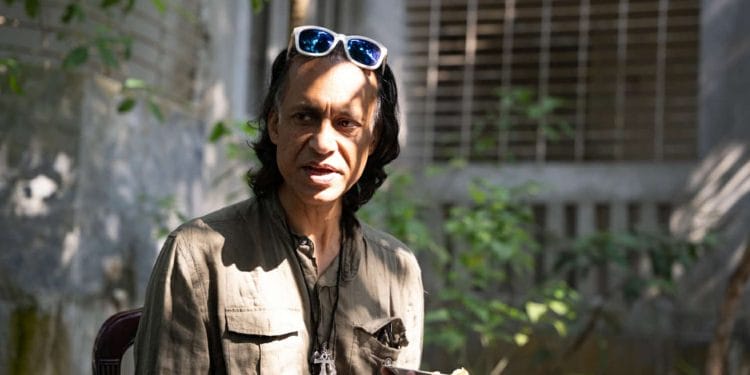Mukul Ahmed directs the world première of breaDth, written by Raminder Kaur, Artistic Director of Sohaya Vision at Omnibus Theatre.
breaDth is a multi-media, magic realist drama based on true experiences of the pandemic, prejudice, and the care of older people. The script was formed from interviews collected by researchers for the Consortium on Practices of Wellbeing and Resilience among Black, Asian and Minority Ethnic Families and Communities (ESRC).
breaDth opens at Omnibus Theatre on 17 May with previews from 16 May and runs until 3 June.
You’re directing breaDth at Omnibus Theatre, what can you tell us about the show?
This play is unique in that it draws upon about 100 real-life experiences from Black and Asian participants from across the UK. It’s creative, participatory & therapeutic. Theatre becomes a gripping avenue for relating their experiences through realist and magic realist devices.
What was it about Raminder Kaur’s script that attracted you to the project?
The script speaks to many people, young and old, It touches upon elements that we would rather keep under the carpet, such as highlighting older people’s prejudices learnt from decades ago. The Writer created an empowering, emotional, entertaining yet sensitive play about COVID-19 including the illness, struggles, deaths and how people have coped with the virus with isolation, on the one hand, and living on top of each other, on the other.
How do you think those interviews that shaped the script have brought realism to the play?
The play is based on actual experiences of the pandemic. We have already engaged over 200 participants in its development. The subject is novel. It raises issues to do with prejudice where those cared for are white and the majority of carers are from minority ethnic or migrant communities.
It forms a bridge for reconciling differences across racial groups. Some older people are disabled. Many carers in paid and unpaid work are women among their other responsibilities. The play meets many needs while creatively moving debates on the pandemic to the theatre, graphic arts, and evocative music and movement.
Tell us a little more about the multi-media aspects of the show?
The power of multiple voices combined with movement, projection, music, and other sounds produce a multi-layered and memorable visual acoustic landscape that will appeal to audiences. You will travel through different time spaces – such as the medieval times of the mystic and jurist, Ibn Khaldun, during the Great Plague to the contemporary times of Edie’s life in England during the pandemic.
What do you think will be the biggest challenge for you as director?
Being truthful to demonstrate how artistic works can be developed and deployed to target the challenges of prejudice and stigmatisation experienced by Back and Asian communities, Also, to add value and increase visibility, and awareness of the social and cultural impacts of the pandemic within families and communities.
What would you say to anyone thinking of booking to see breaDth?
If you want to learn about other people’s real-life experiences, and new territories and explore thrilling art forms, this is the play to see. You will better understand the facts behind the tremendous pressures on Black and Asian communities and care during COVID-19, while learning about how older White people try to manage on their own with or without care.

















